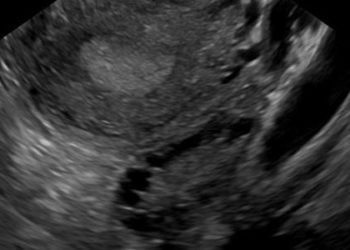Stress associated with infertility
Image: PD
1. Salivary alpha-amylase, a measure of acute and chronic stress, was associated with 2 fold increased risk of infertility.
2. There was no association between salivary cortisol, a marker of chronic stress, and infertility.
Evidence Rating Level: 1 (Excellent)
Study Rundown: This study found that stress, as measured by salivary alpha-amylase, was associated with a 29% decreased likelihood of pregnancy and a 2 fold increased risk of infertility. There was no association seen between salivary cortisol level, an alternate biomarker of stress, and infertility. While retrospective US studies and a prospective UK study have found similar associations, this is the first US study to prospectively evaluate the effects of stress on fecundity and infertility.
Strengths include high follow-up rate and accounting for potential confounders, such as cigarette smoke, alcohol use and caffeine intake. Limitations include lack of evaluation of parity (nulliparous vs. parous) as an effect modifier. Additionally, one-time sampling disallows insight into whether amylase fluctuates with time, perceived stress level or duration of infertility. Future studies might take several samples across time and lifecourse to determine if within-woman salivary amylase appreciably changes (e.g. as a function of perceived stress level, physical activity, diet, parity) or whether it is a relatively static marker representing a woman’s hormonal milleu and thus providing insight into fertility potential regardless of perceived stress level.
Click to read the study in Human Reproduction
Relevant Reading: Paste Other nonstress influences can alter salivary alpha-amylase activity
In-Depth [prospective cohort]: As part of the Longitudinal Investigation of Fertility and the Environment (LIFE) study, researchers prospectively followed 501 couples trying to conceive for up to 12 months or until pregnancy. Follow-up rate was 80% (n=401) and pregnancy rate was 87% (n=347). Fecundity and time to pregnancy were assessed.
Compared with women in the lowest tertile (third) of alpha-amylase, those in the highest tertile had a 29% decreased odds of pregnancy (CI=0.51-1.00) and 2 fold increased risk of infertility (RR=2.07, 95% CI=1.04-4.11). There was no association between salivary cortisol and time to pregnancy or infertility.
More from this author: SSRI use during pregnancy not associated with fetal, neonatal or infant mortality, IUD contraception equally effective in teenagers as in older women, More US women using emergency contraception, Updated USPSTF guidelines favor treatment of mild gestational diabetes.
©2012-2014 2minutemedicine.com. All rights reserved. No works may be reproduced without expressed written consent from 2minutemedicine.com. Disclaimer: We present factual information directly from peer reviewed medical journals. No post should be construed as medical advice and is not intended as such by the authors, editors, staff or by 2minutemedicine.com. PLEASE SEE A HEALTHCARE PROVIDER IN YOUR AREA IF YOU SEEK MEDICAL ADVICE OF ANY SORT.







